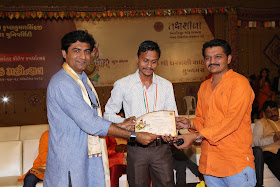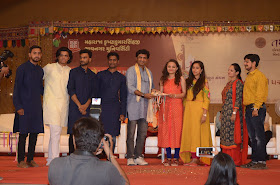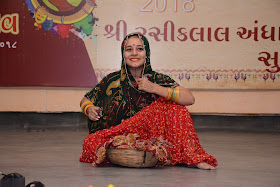Rang Mohan Youth Festival 2019 - task to write reflective blog
Youth Festival is an amazing opportunity to experience various artistic expression of the young generation. It has almost all sorts of artistic events and hence it becomes 'fair of art' and 'fountain of youthful exuberance'.
Youth Festival shall never be missed out by students of art, literature and literature. It provides rare opportunity to apply literary theories on the artistic expression on the university campus by students of their own age. The critique of the artistic expression of students by students is an ultimate test of Matthew Arnold's 'personal fallacy'.
The following task was given to students to write reflective blog based on below given points to ponder:
All students shall write at least one blog on their observations of various Youth Festival activities. Here are some points to ponder upon:
1. Themes represented in various tableaux of Kala-yatra - 25/9/2019 - From Samaldas Arts College to Law College, Sardarnagar. 4 pm to 6 pm.
2. Major themes in dramatic events like One Act Play (एकांकी), Skit (लघु नाटक), Mime (मूक अभिनय) , Mono-acting (एक पात्रीय अभिनय).
3. Can you apply dramatic literary theories propounded by Aristotle (Tragedy), Ben Jonson (Comedy of Humours), Dryden (Play), Martin Esslin (Absurd theatre), Irving Wardle (Comedy of Menace) on the dramatic events presented in Youth Festival?
4. Can you categories One Act Play or other dramatic events as sentimental / anti-sentimental comedy, comedy of manners, classical tragedy, modern tragicomedy or bollywoodish theatre performance?
5. Poetry: In poetry, we have only one event in Youth Festival. સ્વ રચિત કાવ્ય પઠન: If you get chance to listen poems (as it will be in classroom and may be all do not get chance to occupy space) - write on themes, metaphors used in the poems, types of poems (sonnet, lyric etc).
6. On last day, before or after valedictory, all art events like cartooning, painting, collage, poster making, clay-modelling, installation will be open for public display. You can study themes, satire, didacticism, aestheticism in all these artistic expressions.
7. Lastly, write on which ever other events you attend and along with it, overall feeling of experiencing Youth Festival - ponder upon this - it is known as 'festival of youthfulness' - युवानी का महोत्सव.
Submit the link of your blog/s as assignment submission. If you are writing more than one blog, submit all links together.
Here are some worth reading blogs by students:

















































